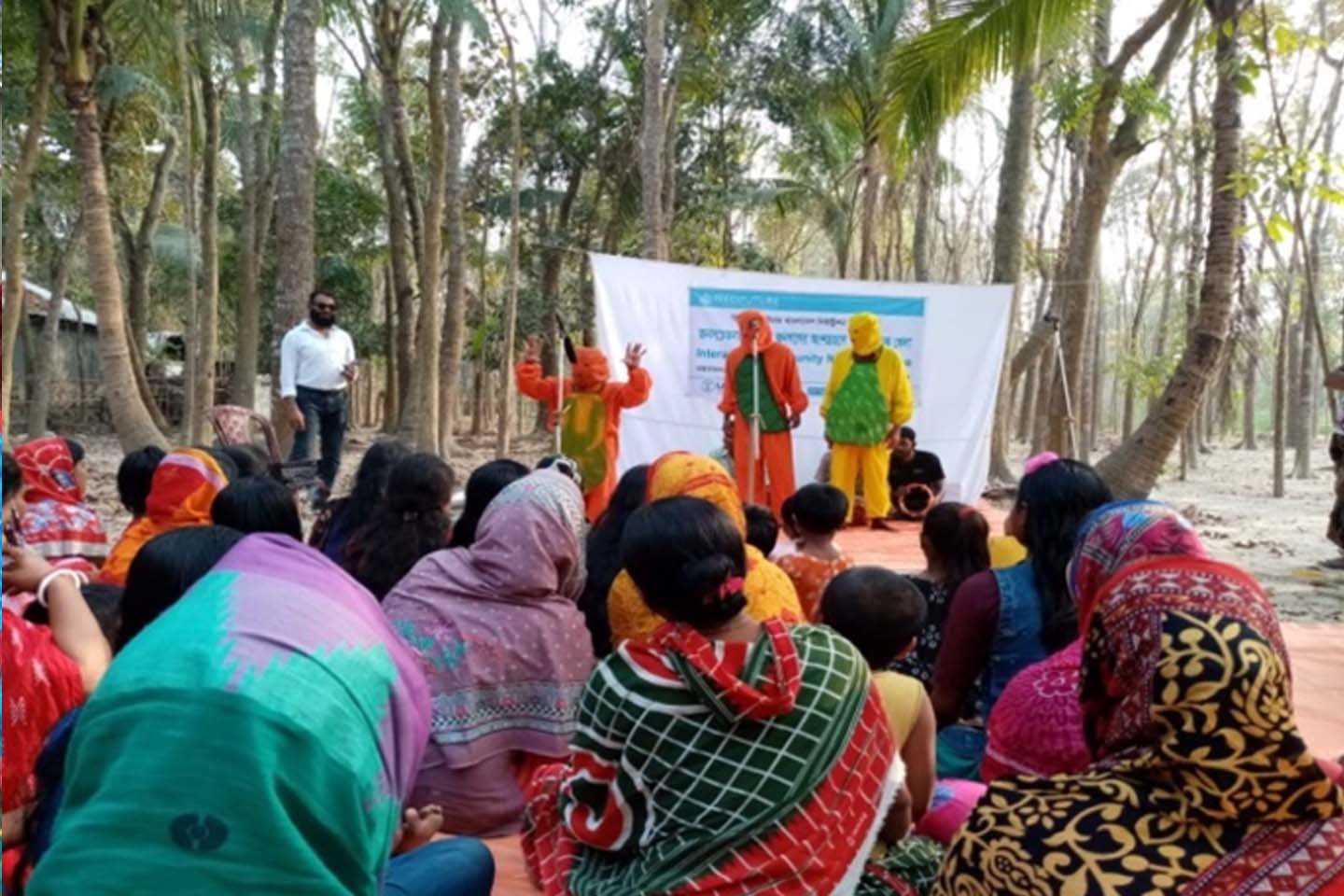Feed the Future Bangladesh Nutrition Activity
Nutritional status of Bangladeshis has improved steadily over the past decade, but challenges remain. For example, the prevalence of children under five who are stunted and underweight declined from 43 percent and 41 percent in 2007 to 31 percent and 22 percent in 2017, but these levels are still high. Underlying causes of poor nutrition outcomes are unhealthy diets and lifestyles; low access to and utilization of safe water and sanitation; and poor hygiene practices. Gender inequities in household production and consumption further exacerbate the poor nutritional status of women and girls. The Feed the Future Bangladesh Nutrition Activity, funded by USAID, applies a combination of market system development and social behavior change (SBC) approaches that empower market and community actors to address underlying causes of malnutrition in 23 districts and catalyze sustainable change in communities, particularly children under five years of ag e, pregnant and lactating women, and adolescent girls and boys.
Goal & Objectives
The goal of the Activity is to contribute to improved nutritional outcomes in the Feed the Future Zone of Influence and Zone of Resilience through:
Increasing consumption of nutritious, diverse, safe, and balanced diets by households
Increasing social and economic empowerment of women, and social empowerment of adolescents
Improve water, sanitation, and hygiene (WASH) situations through following effective ways, develop personal health hygiene practices and to take actions for amplifying the process successively.
Project Funded By:
USAID
Project Duration:
October 2023 to September 2024 (Phase-2)
Implemented By:
Friends In Village Development Bangladesh (FIVDB)
Technical Lead:
Abt Associates Inc.
Beneficiaries (FIVDB):
Children under 5 years, Pregnant & lactating mothers and Adolescents.
Implementing Districts:
Faridpur, Rajbari, Madaripur and Cox’s Bazar.
Activity Highlights
Project activities has improved the nutrition outcomes of approximately 1,64,434 participants till September 2023
Conduct 1322 courtyard sessions with homestead women households and family members for the increasing agency on women's workload balance, joint decision-making and control over household resource use with 27,684 participants.
Organize 367 sessions for homestead producers (Grantee and DAE) on food safety (food loss and food waste), post-harvest handling, and cooking practices (Session-03) with 15,742 participants.
Facilitated approximately 12,434 households on the significance of consuming a diversified and nutritious diet through utilizing climate-smart practices to produce nutritious foods on their homestead
Conduct 245 courtyard sessions with women entrepreneur's family members and spouses for increasing awareness of women's control over their own income and joint decision-making about household resource use with 5,079 participants
Established 606 Demonstration on Homestead nutrition garden. Conducted 606 Demo inauguration sessions with 12,764 demo farmers & community farmers.
Organized 152 Interactive Game shows where 31,168 participants attended.
Organized 272 Audio Visual Drama and Music video show on awareness rising on nutrition WASH and women empowerment where 14,821 participants attended.
Organized 101 street dramas where 22,229 participants attended.
Enabled 21,500 people to adopt improved hand washing practices through establishing hand washing stations in rural areas.
Sustainable Changes in the Communities
The project partners with public and private sector actors including NGOs, social enterprises in increasing access, demand, and utilization of products and services for dietary diversity and hygiene in households. The Activity’s partnerships, market facilitation, and SBC, empower women to participate in household decision-making, and increase their access to and control over household resources. The Activity’s training and support to adolescents in partnership with schools enhance the knowledge and life skills of adolescents; enable them to catalyze adoption of healthy behaviors among their peers, in their homes, and in their communities. As a result, households are consuming balanced nutritious diets, and adopting improved safe WASH practices. To sustain its successes, the Activity advocates for increased financing, improved policies, regulation, and coordination in the food, WASH, and women entrepreneurship market systems as well.
Photo Gallery
Figure-1 : Demo Courtyard session
Figure-4: Women Entrepreneurship training
Figure-7: Street Drama
Figure-2:-Family Meeting
Figure-5: Stakeholders linkage workshop with govt. officials
Figure-8: Post planning workshop with MMC for Food lost and waste
Figure-3: Homestead Demonstration
Figure-6: Interactive game show









